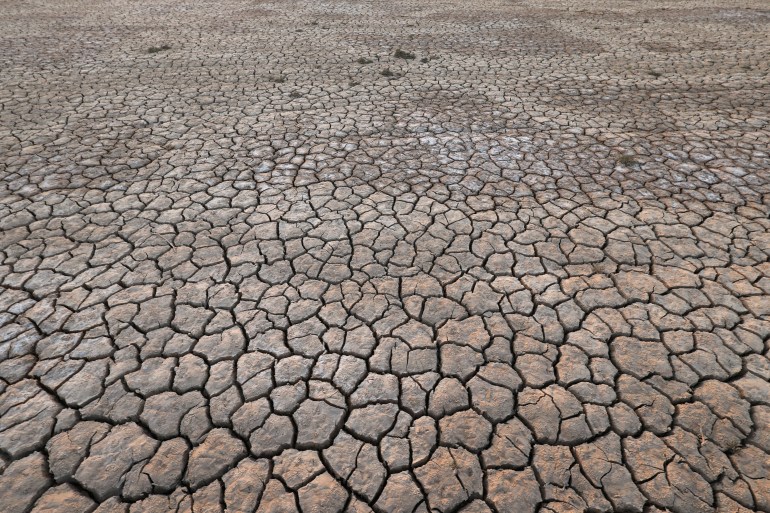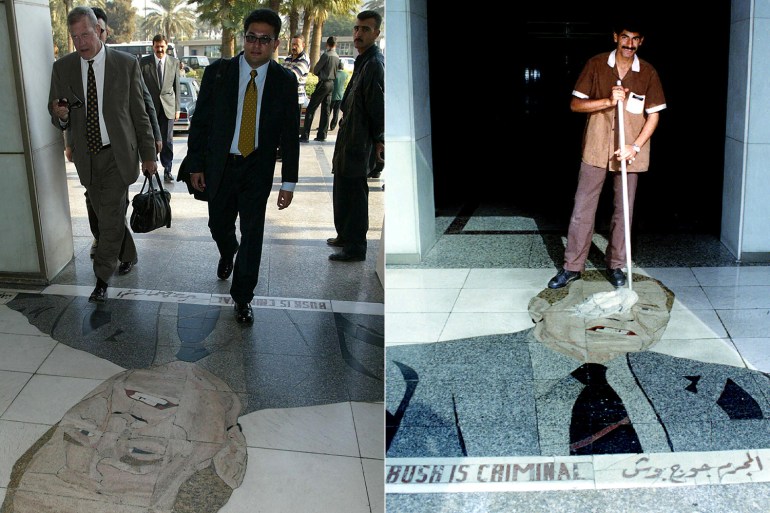Middle East round-up: A reminder of dark days in Istanbul
Here’s a round-up of Al Jazeera’s Middle East coverage this week.
Istanbul reels from a deadly bombing, the Arab world is running out of water, and death sentences in Iran. Here’s your round-up, written by Abubakr Al-Shamahi, Al Jazeera Digital’s Middle East and North Africa editor.
The grainy video taken by security cameras shows a woman walking with what looks like a bag. She stops to sit on a bench along Istiklal Avenue, a packed pedestrian walkway in central Istanbul. She then gets up and walks away. The video quality isn’t great, but the Turkish authorities say the woman left her bag behind. A few minutes later, there’s an explosion that kills six people, including a child.
For many people in Istanbul, the bomb attack reminded them of the darker days of 2015 and 2016. Back then, Turkey’s largest city, along with the rest of the country, faced an array of attacks, some by ISIL (ISIS), others by groups affiliated with the Kurdish PKK.
I used to live in Istanbul, and remember regularly walking past the Reina nightclub, the site of one of the worst attacks. That’s where an ISIL gunman shot and killed 39 people celebrating the 2017 New Year. I’d say security in Istanbul has improved a lot since then, but the sight of an explosion on Istiklal, in the heart of the city, has brought back fear, and in some cases, defiance.
Authorities say the main suspect in the attack has been arrested, and that she’s confessed to being trained by the PKK across the border in Syria. The PKK deny that, and have said they’re not in any way involved. Whoever did this, don’t rule out Turkey moving ahead with the anti-PKK military operation in Syria that they’ve been threatening for several months now.

A water crisis in the Arab world
With the COP27 climate summit wrapping up in Egypt this week, there’s been a lot of attention on the wider region’s environmental crises. Chief among them is the fact that the region’s drying up — and fast. Take Iraq — ancient Mesopotamia, literally the “land between the two rivers”. As a result of reduced rainfall, overuse and dams in Turkey, water levels in the Tigris and the Euphrates rivers have dropped considerably, leading to less fertile lands. Bad for farming, but good for archeology — the reservoir created by the Mosul Dam has dried up so much that the ancient city of Zakhiku has re-emerged.
Meanwhile, on the other side of the Arab world, in Morocco, similar problems abound. Dry riverbeds in the Dadès Valley have left locals with only memories of the waters that used to flow through their villages. They blame mismanagement of water resources, mining and a nearby solar power plant.
Death sentences in Iran
Anti-government protests in Iran have now hit the two-month mark, and show no signs of letting up. But neither does the government crackdown. The first protest-related death sentence was handed down on Sunday, followed by four more since then. But you might have seen another number being spread online — namely that 15,000 executions have been ordered. That’s wrong, and we’ll tell you why.
And Now for Something Different
Iraq has had a tumultuous 40 years, and along with it, Baghdad’s famous Al Rasheed Hotel. Located on the banks of the Tigris, the hotel was the place to be seen — quite literally. Under Saddam Hussein, the hotel was equipped with two-way mirrors and hidden cameras. Aesthetically, the floor in the lobby once featured a mosaic of President George HW Bush, so people could walk on his face. After the US invasion that deposed Saddam, the hotel was looted and shelled, before becoming a base for the US military. But now, finally, better days have returned for the hotel, regarded as one of the finest in the city.

In Brief
Iran accused after oil tanker hit by a “bomb-laden” drone off the coast of Oman – UN agency for Palestinians is short of millions in funding – Azerbaijan arrests five people accused of spying for Iran – Israeli air attack kills two soldiers in Syria – FIFA announces Tel Aviv-Doha charter flights for the World Cup, but Qatar says no to normalisation – Israel’s Netanyahu given mandate to form government – Palestinian shot dead after killing three Israelis in West Bank settlement – 15-year-old Palestinian girl shot dead by Israeli army – Shireen Abu Akleh’s family welcome news that US plans to investigate her killing by Israel – Two Egyptian girls found dead at Syria camp hosting ISIL families
Quote of the Week
“I haven’t celebrated for a long time, and want to celebrate with my cellmates, so bring a cake.” – Egyptian activist Alaa Abd el-Fattah, in a letter to his mother from prison. Abd el-Fattah had been on a hunger strike, and had stopped drinking water, to protest against his imprisonment, attracting attention at COP27. His family feared the worst after he went silent for a few days, but he has now told them he will explain why he has ended his hunger strike in his weekly meeting with his mother. Abd el-Fattah is just one of thousands of political prisoners in Egypt. Critics have accused the country of using COP27 to gloss over its poor human rights record, and have also warned the conference’s attendees that the COP27 app could be used for surveillance.




